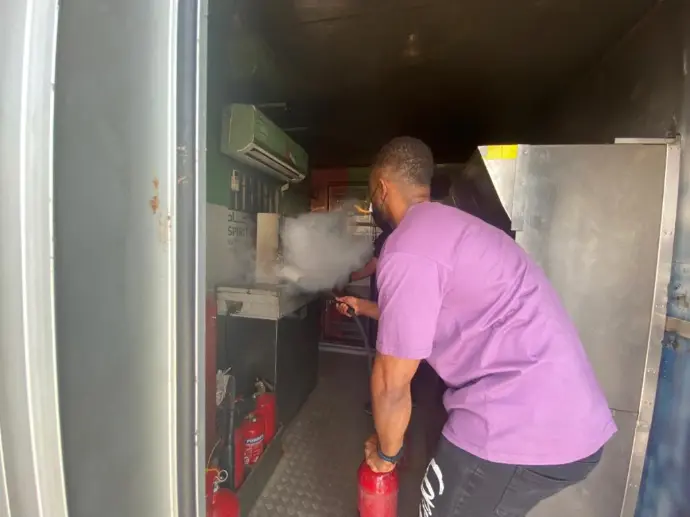Introduction
At workplaces, incidents and accidents might happen at any time, due to unsafe acts or unsafe conditions, and we all believe we cannot control the workplace by 100%, there is always some failure and flaws. However, we must control the risk as much as reasonably practicable.
The employer is responsible for reasonably foreseeable risks, and to assess that, they can conduct simple risk tests. We can know if the risk is foreseeable, in one of three ways: common knowledge, industry knowledge and experts’ knowledge.
An accident can happen; that is the reason why safety is everyone's responsibility, yet, to reduce the consequences, employers must create an emergency procedure plan or emergency action plan. This kind of question you might encounter in the NEBBISH IG1 exam.
What are the emergencies to prepare for?
Based on the workplace and the industry, there are many emergency action plans. Employees used to be prepared for emergencies like fire and first aid; however, there are a plethora of emergencies companies should be prepared for. For example, hazardous chemicals, natural disasters (ex., earthquakes), and bomb threats.

Drill Types
The emergency response generally includes a drill, such as a fire drill, a work at height drill, an electrical shock drill and a snake bite drill, and they are all part of emergency response plans.
Why do we need the emergency procedure?
1-Preserve the employee’s life
It is the main goal of the emergency procedure; without an action plan in place, the consequences of an incident can be damaging and catastrophic.
2- reduce plant and equipment damage
Acquiring a suitable emergency procedure can help to reduce the monetary value of maintenance and the time to retain the normal production pace. Control measures such as fire call points, fire extinguishers, machine heat and pressure gages and emergency push buttons can reduce the impact of incidents and loss.
3- preserve the business
The employer must have a clear emergency action plan to preserve the business for the consequences. For example, damage to a company's reputation and goodwill can be one of the issues an employer must be aware of.
3- Insurance
Companies purchase insurance to cover the loss in case of an emergency. Unfortunately, that gives a false sense of immunity, because the insurance does not cover the indirect cost of the accident. For example, sick pay leaves, cancelled purchased orders and enterprise reputation.
4- For community and environment
Early response to an emergency reduces the overall effect of that emergency dramatically. A swift response can save lives and a lot of money. For instance, gas leakage in a domestic area can cause a tragic explosion, and alert and fit control measures like a leakage detector, loud alarms and a clear evacuation plan with frequent drills can reduce the loss drastically.
5- compliance with legal requirements
Local and international law mandates the provision of emergency procedures and emergency action plans in all workplaces, and this compliance is monitored by frequent inspections and registration in the government's different bodies. For example, R171 - Occupational Health Services Recommendation, 1985 states in section D ‘’ 23. Taking into account national law and practice, occupational health services in undertakings should provide first-aid and emergency treatment in cases of accident or indisposition of workers at the workplace and should collaborate in the organisation of first aid.’’. None- conformance with these legal requirements would result in a fine, prosecution or imprisonment
Conclusion
All in all, it is a moral duty of an employer to provide a suitable and adequate emergency procedure, a sufficient number of first aiders, and proper first aid boxes in the workplace, in addition to refreshing training for first aiders annually. Above that fire, the fire drills are mandatory once a year in many national laws, and sometimes it is been done under the supervision of the national civil defence.